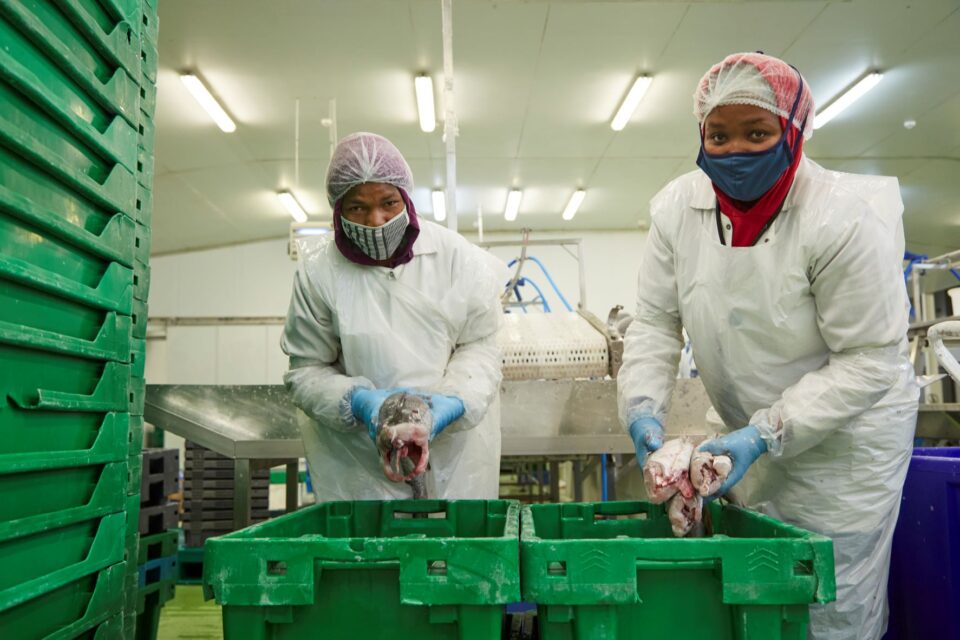South Africans should care about our long coastline and oceans, not least because we’re fortunate to have this nature on our doorstep, but also because demand for seafood continues to rise and still plays an important role in food security. Further, because for our country it’s an important contributor to the economy.
That’s the word from Michael Marriott, Programme Manager for the Marine Stewardship Council’s (MSC) AMESA region, one of the sustainability champions featured in a new campaign to shine a spotlight on the people behind South Africa’s fishing industry.
Initiated by Atlantis Seafood Products, the Making Waves campaign (#makingwavesza) comprises interviews with and insights from people who span a multitude of roles many South Africans would never have equated with the fishing sector – their stories of how they came to work in fishing, what’s important to them and the role that the sector plays in their lives and that of their families.
In addition to Marriott, a sustainability champion featured in the campaign is Pavitray Pillay, Environmental Behaviour Change Practitioner & WWF SASSI Manager.
WWF SASSI (Southern African Sustainable Seafood Initiative) was launched in 2004 to drive change to the local seafood industry. It does this by working with suppliers of seafood, as well as bringing awareness to the consumer to make the right choices when purchasing seafood, therefore putting pressure on retailers to procure sustainable seafood. If the consumer is educated about where the fish comes from, the retailer is forced to source fish from sustainable fisheries or countries.
Pillay explains the concept in more detail: “We developed the SASSI listing system which works like a traffic light. Red means, don’t purchase, as the species are under threat and their numbers are dwindling. Orange means, think twice — consume it, but not all the time. While green means, enjoy.”
In her Making Waves contribution, Pillay shares how she gets to make an impact that goes beyond simply saying ‘Save the Fish’.
“There are those who are reliant on that environment, reliant for their livelihoods, for a source of food. So, you can’t simply have a preservationist attitude towards this environment. Rather, if we are to use the resource, we must do so responsibly and sustainably,” Pillay concludes.
Also walking the seafood sustainability tightrope, Marriott highlights how he and his environmentalist colleagues must set the bar, the MSC standard, to balance the need for sustainability against the effectiveness of certification as a tool to drive change. That is, ensure that the industry leaves enough fish in the water so that fish populations can continue to be viable, while at the same time providing enough incentive for fisheries to commit to constant improvements.
The role certification plays in the sustainable seafood movement is quite unique. “To ensure the MSC remains a tool for incentivising fisheries to make improvements, we need to create the market pull, we need to be setting a standard within reach of the best fisheries. We need to identify the fisheries that can achieve the standard and identify those that can benefit from working towards it.”
Says Marriott: “The fishing industry may fly under the radar and not be seen as something that affects the average South African day-to-day, but it certainly employs a lot of people and that means we need to hold all the players accountable for preserving this natural asset.”
South Africa’s Department of Forestry, Fisheries and the Environment sets the Ocean Sector’s potential contribution to the economy at one million jobs and R177-billion by 2033.
According to Fish SA, its members which represent a sizeable portion of the fishing industry, already feed more than three million people in South Africa every day, from an affordable and tasty meal of canned fish to a parcel of hake and chips, to locally caught rock lobster in a fine restaurant.
The journey this seafood travels, from harvesting at sea to your plate involves a complex network of people working in the fishery value chain – 22 different sectors, directly employing over 27,000 South Africans, many of which come from previously disadvantaged communities like Atlantis on the West Coast.
Earmarked by the apartheid government for the coloured community of Cape Town in the 1970s, Atlantis is home to a large community that has faced some of the most extreme economic hardships.
It is there that Atlantis Seafood Products, the largest 100% black-owned fresh and frozen seafood production factory in South Africa, has grown from humble beginnings with just five staff members in 2003 to employing over 350 people.
Its 42000m² space, where an impressive array of seafood products is handled, packaged, and processed, is wholly owned by the Atlantis Seafood Products Employee Empowerment Trust. Of the 100% black ownership, 84.7% are black women from Atlantis and surrounds.
These women are often the only breadwinners for their extended families, making the Trust responsible for over 1,500 people in the broader community. Their livelihoods are directly influenced by some of the Making Waves champions they’ve chosen to feature in this heart-warming campaign.
To view some of the profiled super lifters and beneficiaries of South Africa’s fishing industry, visit www.makingwavesinza.com or follow the hashtag #makingwavesza.

